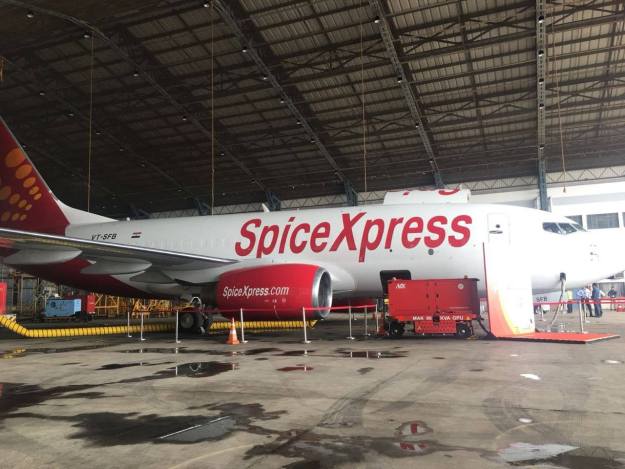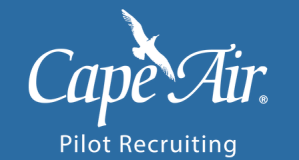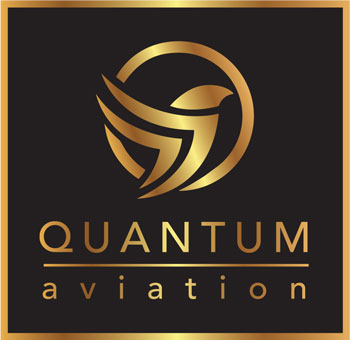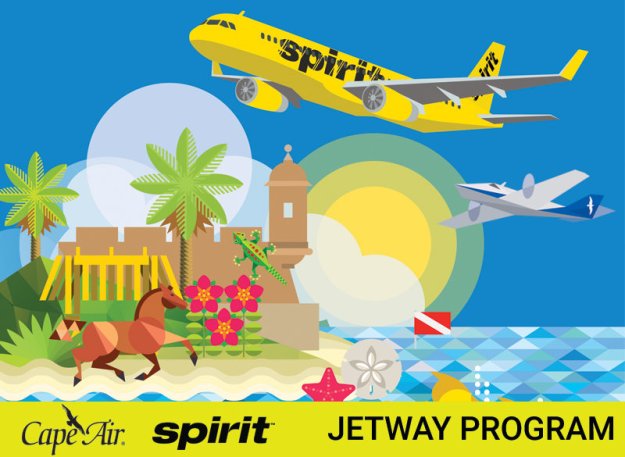
SpiceJet adds its first Boeing 737-700 freighter to its “SpiceXpress” fleet
September 12, 2018
OpenSkies ends Boeing operations, retires the brand
September 13, 2018Cape Air and Spirit Airlines are pleased to announce the Cape Air-Spirit Jetway Program specifically designed for today’s aspiring pilots. The program is a defined career pathway designed to create a faster and more streamlined approach for pilots looking to transition from a regional carrier to a major airline.

Pilots are eligible to join the Cape Air team with as little as 500 flight hours, and fly as a First Officer for the nation’s largest independent regional carrier. Once ATP minimums are reached, the pilot will then upgrade to Captain for Cape Air and fly for a minimum of two years. Once the candidate has reached 3,000 hours, they will complete a jet transition course at Spirit Airlines Training Center and then be assigned a class date at Spirit Airlines.

“Our pilots are known industry-wide for their hands-on flying and aeronautical decision making skills making this partnership a win-win for both parties. Our commitment to safety, our communities, employees and our passengers is always at the forefront of everything we do. We are thrilled to partner with Spirit on this exciting new pathway, and we look forward to growing our pilot bases and nurturing the next generation of pilots for years to come,” said Linda Markham, Cape Air president.
“Spirit Airlines is proud to be partnering with Cape Air as we remain committed to connecting with and recruiting the best aviators in the industry,” said Ryan Rodosta, Spirit Airlines’ Chief Pilot. “There is no doubt this innovative program will help us maintain a skilled and robust pilot workforce for years to come.”
The Cape Air-Spirit Jetway Program is open to all current and future Cape Air pilots. Candidates will have only one joint interview with both Cape Air and Spirit. Once the pilot is accepted into the program, a Spirit mentor will be assigned. Unlike most pilot pathways, candidates are not required to have a higher education degree. A two-year or four-year degree is preferred, but not required.

Pilots flying for Part 121 Operators, such as Spirit, face a mandatory retirement age of 65, while pilots flying for Part 135 Operators, like Cape Air, have no mandatory retirement age, only the ability to maintain a First Class Medical. Cape Air’s Gray Gull Program, provides pilots with an opportunity to continue flying past the age of 65. Retired or furloughed Spirit pilots can in turn transition to Cape Air and fly as a Gray Gull. Currently, Cape Air has retired pilots flying from almost every major carrier.
Photos. Cape Air.



